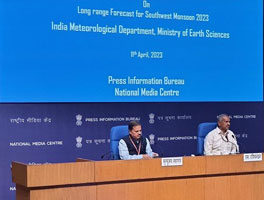 |
Dear readers,
Welcome to the Climate Weekly newsletter by the Centre for Science and Environment’s Climate Change programme and Down to Earth.
Voluntary carbon markets have been all the rage as organizations jump on the net-zero bandwagon. Companies buy carbon credits to “offset” emissions from their operations. But fraud allegations in this voluntary market have mushroomed in recent years, as CSE’s 2022 paper by Sunita Narain and Avantika Goswami highlighted. What are the problems of laissez-faire carbon markets, and do they need to be reined in? This week, I put the spotlight on a set of rules created by an independent body known as the Integrity Council, to help with the market’s bad greenwashing image.
Elsewhere, DTE’s Akshit Sangomla writes about IMD’s monsoon forecast, which says that there is a 51% chance of below-normal rainfall in many parts of India.
CSE’s Kiran Pandey highlights a study warning of rising heat-related deaths in MENA and emphasizes the need for action to mitigate extreme weather's impact.
In other news, India's new natural gas pricing guidelines will not benefit nearly half the country’s consumers. And DTE’s video explainer discusses how climate change is impacting seeds important to India.
Finally, CSE’s Climate Change programme invites you to our online discussion on April 19th. CSE’s Director-General Sunita Narain joins global experts to deliberate on the question: why should developed nations be allowed to use natural gas unhindered, while the developing world gets called out for using coal – when both the fossil fuels contribute to global warming? Read her views on the issue here and here.
|
|
 |
| |
 |
|
| |
 |
 |
| |
By - Trishant Dev
Climate Change, CSE
|
| |
|
 |
|
|
| |
 |
|
| |
| EXTREME WEATHER TRACKER |
| |
There’s 50% chance of monsoon to be below normal or deficit this year, 11 April 2023
|
 |
 |
|
|
| |
 |
|
| |
 |
 |
Deaths due to heat in Middle East & North Africa likely to rise 60 times by end of century, 11 April 2023
|
|
|
| |
 |
|
| |
|
|
| |
 |
|
| |
|
|
| |
|
|
| |
|
|
| |
 |
|
| |
|
|
| |
 |
|
| |
CLIMATE NEWS | SCIENCE| IMPACTS| POLITICS |
|
| |
 |
|
| |
|
|
| |
 |
|
| |
|
|
| |
 |
|
| |
|
|
| |
 |
|
| |
|
|
| |
 |
|
| |
|
|
| |
|
|